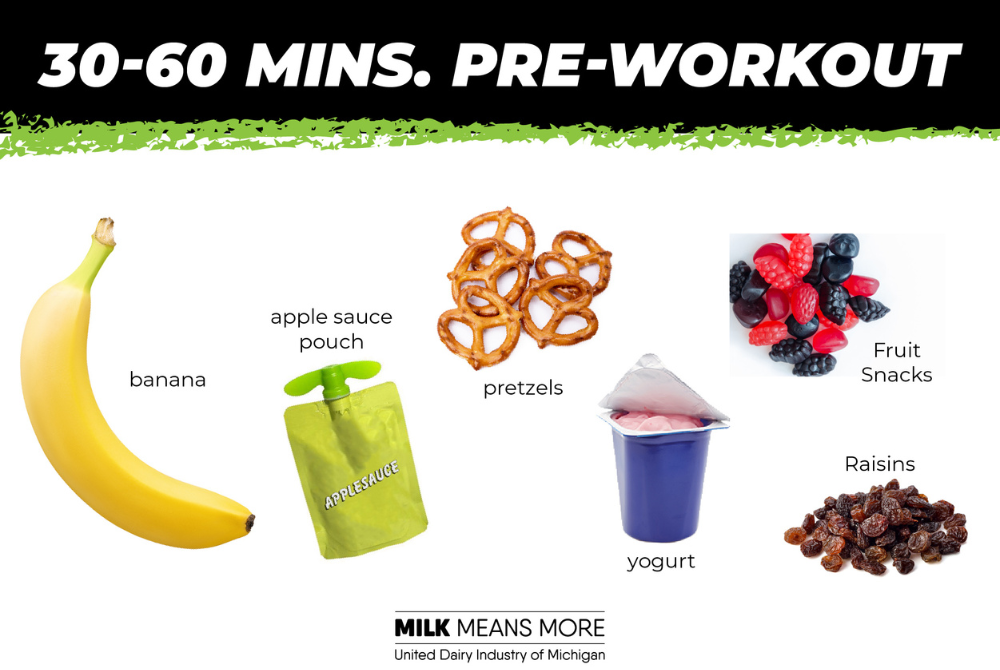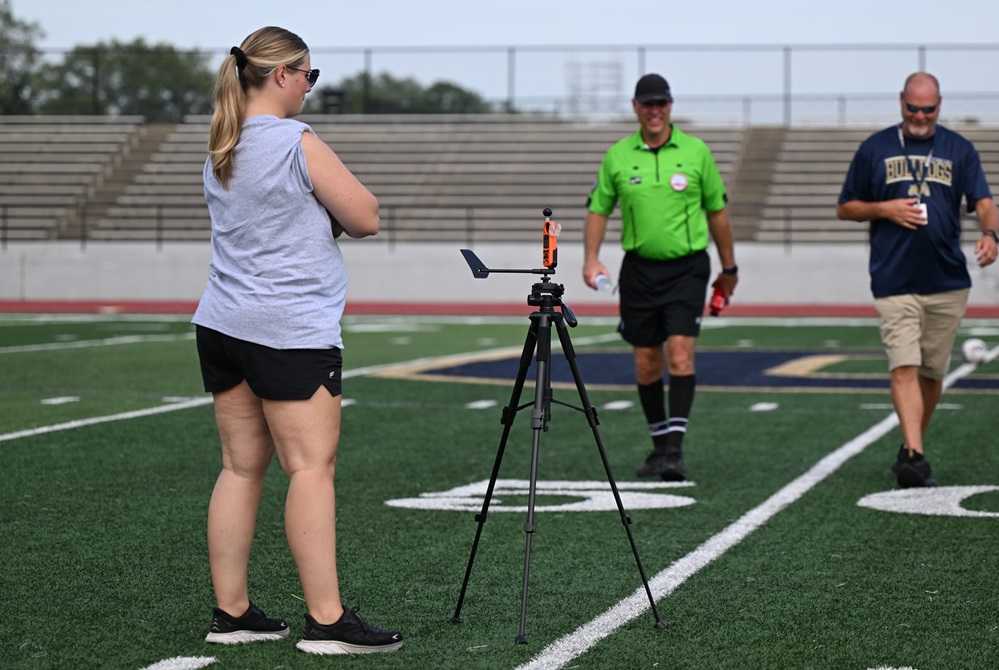
Coach's Guide to Nutrition: Pre-Workout Snacks
September 10, 2024
Heading into practice or a game under-fueled may take away from athlete performance. Encourage student-athletes to not only eat regularly throughout the day, but to have a small, carbohydrate-focused snack about 30-60 minutes before activity. This will top off their energy stores so they are ready to hit the field.
Pre-workout snacks don’t have to be complicated. Choose easy, high-carb snacks that can be stored safely in a gym bag.
Snacking can be detrimental when done out of boredom or in place of regular, balanced meals. But, for an athlete, healthy snacks can aid performance and recovery.
In planning to eat every 3-4 hours, a mid-morning snack may be ideal. Having a snack in the hour or two before practice and in the ‘window of opportunity’ following practice can help maintain energy levels and ensure proper recovery.
Work with your athletes to create simple snacks that are easy to transport. Encourage athletes to include a carb and protein in each snack when possible. Fresh fruit, granola bars with 8-10 grams of protein, or trail mix that includes nuts/seeds and dried fruit are easy to keep in a gym bag and relatively affordable. A small cooler with an ice pack is a great way to keep snacks cold and fresh.
Snacks are important to maintain energy between meals, before exercise and after workouts. Snacks before and after exercise help performance as well as aid optimal recovery. Try to include carbs and protein in every snack.
Information above is excerpted from UDIM’s A Coach’s Guide to Nutrition.

Heat Ways: School Sports Prepared for Oncoming Wave of High Temps, Humidity
By
Geoff Kimmerly
MHSAA.com senior editor
August 27, 2024
With temperatures and humidity expected to rise exceptionally today across most of downstate Michigan, decision-makers across school sports are prepared to take precautions to keep all involved in our activities safe as we ride out this latest heat wave.
The MHSAA’s Model Policy for Managing Heat & Humidity is required only during postseason activities, but has been adopted by several schools across the state for preseason and regular-season practices and competitions.
The plan directs schools to begin monitoring the heat index at the activity site once the air temperature reaches 80 degrees and provides recommendations when the heat index reaches certain points, including ceasing activities when it rises above 104 degrees. (When the temperature is below 80 degrees, there is no combination of heat and humidity that will result in a need to curtail activity.) Other precautions include the addition of mandatory 10-minute water breaks and the removal of equipment (including helmets and shoulder pads in football).
The model heat & humidity policy is outlined in a number of places on the MHSAA Website, including as part of the Heat Ways publication linked on the “Health & Safety” page.
PHOTO Otsego High School trainer Taylor Austin tracks field conditions Monday during a soccer match. (Photo by Gary Shook.)


